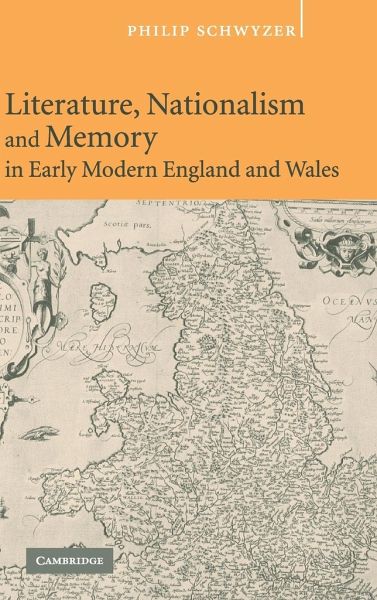
Literature, Nationalism, and Memory in Early Modern England and Wales
Versandkostenfrei!
Versandfertig in 1-2 Wochen
74,99 €
inkl. MwSt.
Weitere Ausgaben:

PAYBACK Punkte
37 °P sammeln!
The Tudor era has long been associated with the rise of nationalism in England, yet nationalist writing in this period often involved the denigration and outright denial of Englishness. Philip Schwyzer argues that the ancient, insular, and imperial nation imagined in the works of writers such as Shakespeare and Spenser was not England, but Britain. Disclaiming their Anglo-Saxon ancestry, the English sought their origins in a nostalgic vision of British antiquity. Focusing on texts including The Faerie Queene, English and Welsh antiquarian works, The Mirror for Magistrates, Henry V and King Lea...
The Tudor era has long been associated with the rise of nationalism in England, yet nationalist writing in this period often involved the denigration and outright denial of Englishness. Philip Schwyzer argues that the ancient, insular, and imperial nation imagined in the works of writers such as Shakespeare and Spenser was not England, but Britain. Disclaiming their Anglo-Saxon ancestry, the English sought their origins in a nostalgic vision of British antiquity. Focusing on texts including The Faerie Queene, English and Welsh antiquarian works, The Mirror for Magistrates, Henry V and King Lear, Schwyzer charts the genesis, development and disintegration of British nationalism in the sixteenth and early seventeenth centuries. An important contribution to the expanding scholarship on early modern Britishness, this study gives detailed attention to Welsh texts and traditions, arguing that Welsh sources crucially influenced the development of English literature and identity.




